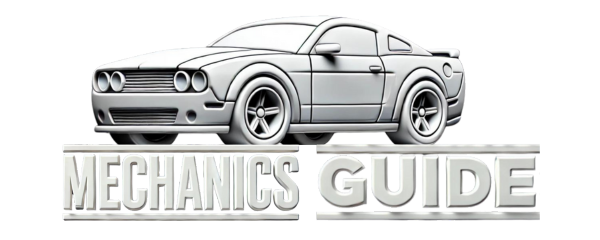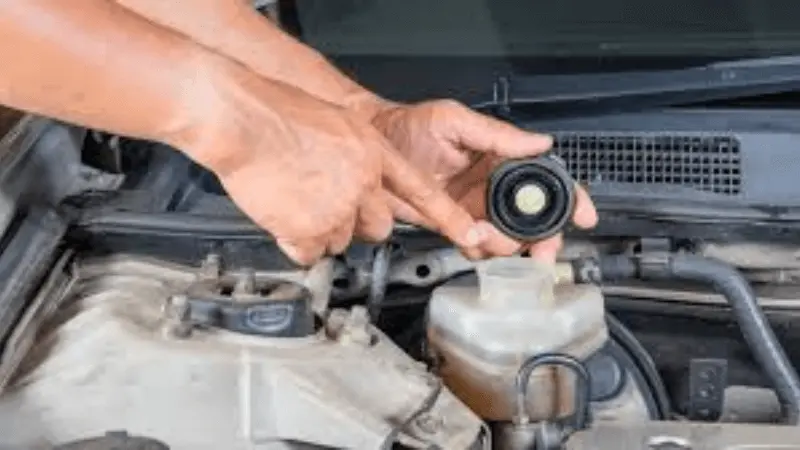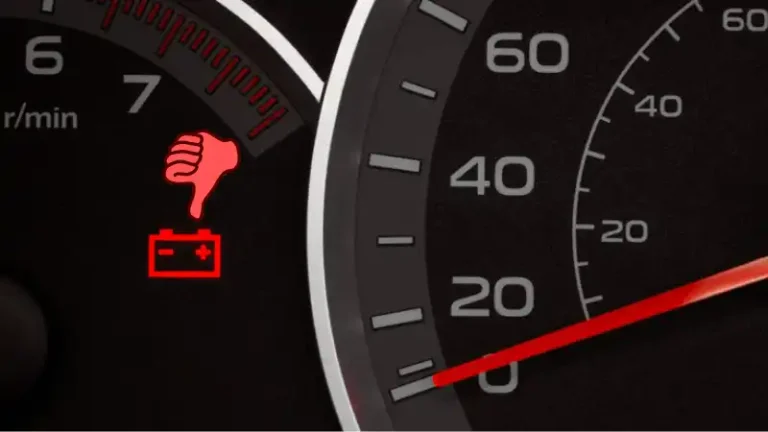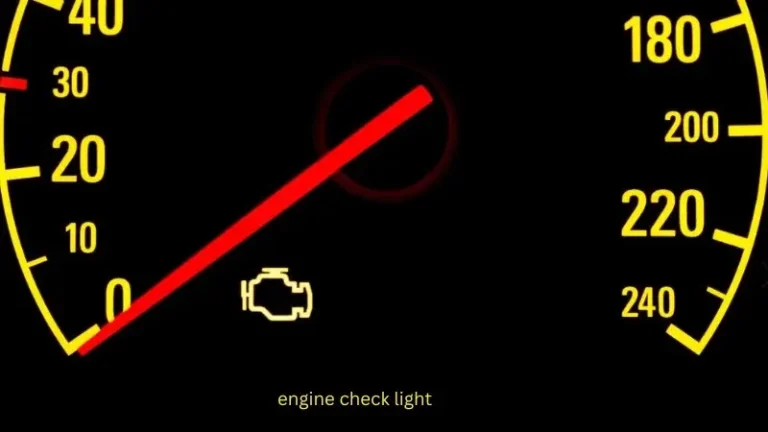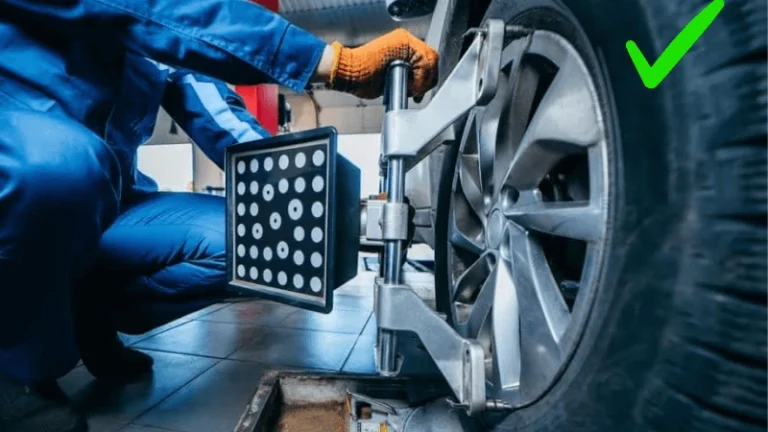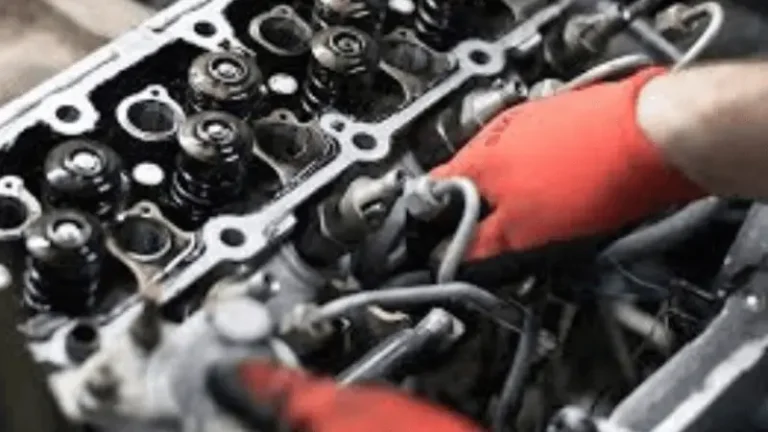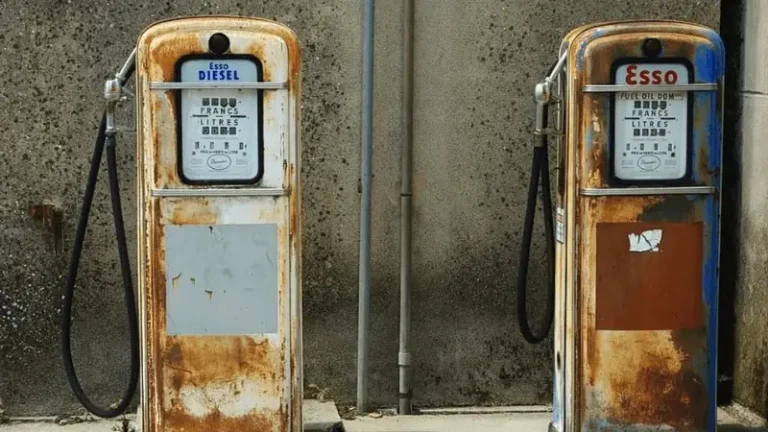A brake fluid leak indicates that your braking system is not working properly. Ultimately, it can cause major damage to both you and your car. Let’s take a closer look at the common signs that indicate your braking system is compromised.
Symptoms of a Brake Fluid Leak
Feeling a soft brake pedal when pressing it is due to a faulty hydraulic system in your car and may be caused by leaking brake fluid. A spongy brake pedal is the first sign of a brake fluid leak.
The dashboard brake fluid warning light turns on when your fluid starts leaking. This is a sign that alerts you to a braking issue. Seeing a brake fluid puddle under the car or near the tires is a confirmed sign that your brake fluid is leaking. Smelling burning brake fluid occurs when brake oil leaks onto a hot component of the brake system.
If you need to apply more effort to stop your car while pressing the brake pedal, it indicates a brake fluid leak. This means your hydraulic system is losing brake fluid. It is a sign of poor braking performance. Experiencing a sinking brake pedal is a sign of brake fluid loss and master cylinder failure.
Quick Fix for a Brake Fluid Leak
To overcome the issue of brake fluid loss, do the following immediately:
- Check the brake fluid levels to ensure that the fluid is at the optimum level, not lower than the normal range.
- Check for visible leaks under the car. Identify the exact spot of the leak. Inspect the brake lines, calipers, and areas near the tires.
- Avoid driving the car if your braking system is leaking. It can worsen while driving, so it’s better not to drive a car with leaked brake fluid.
Causes and Detailed Repair Solution
Repair solution are discussed given below:
Brake Fluid Leaking from Caliper
The caliper is located at each wheel and causes the brake pads to squeeze the rotor, resulting in the slowing down of the car. Leaking brake fluid from a worn-out caliper seal can also cause dropping fluid levels. The brake fluid leaking from inside the caliper affects the performance of the braking system very badly.
Solution: Check each caliper by removing the tire from the wheel and inspect for possible leakage.
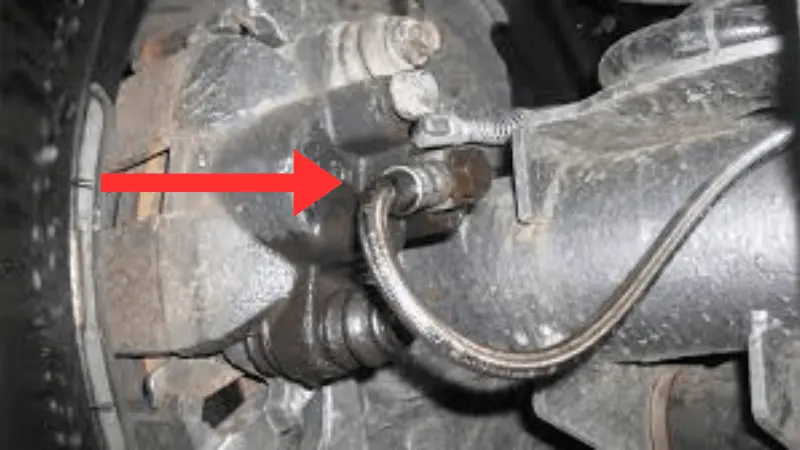
Brake Fluid Leaking from Master Cylinder Reservoir
The master cylinder is located near the engine bay. It transfers brake fluid to all parts of the braking system and converts pedal pressure into hydraulic power. Any brake fluid leakage from the master cylinder reservoir can be visible or due to internal damage. Check whether your master cylinder is working properly.
Solution: Replace or restore the master cylinder if it is not functioning properly.
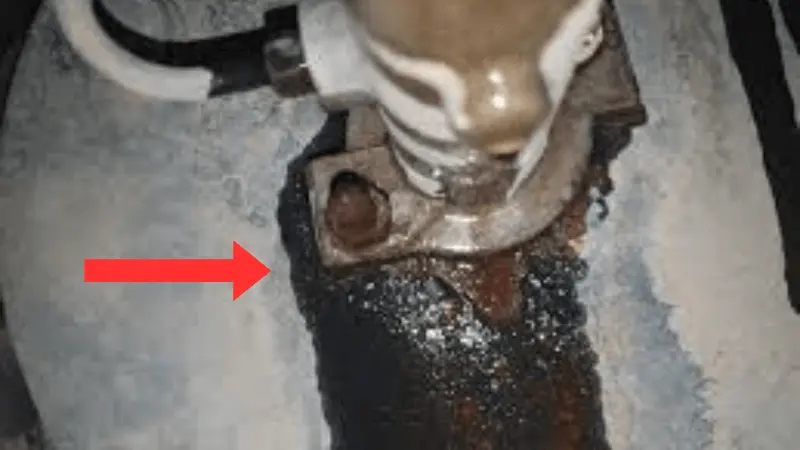
Brake Line Leak
The calipers and the master cylinder are separated by brake lines. They carry brake fluid and can become corroded or rusty, causing fluid to leak. Look for any damage or leaks in the lines. A brake fluid line leak can lead to a failed braking system.
Solution: Flush the brake lines or replace them with new ones if they are damaged or leaking.
Brake Booster Leaking
The brake booster is situated between the brake pedal and the master cylinder, typically on the front side of the engine compartment. If the brake pedal is unusually hard, it is a sign of a leaking brake booster. A hissing sound upon engaging the brake pedal signifies a malfunctioning booster. A vacuum leak in the booster can cause the vehicle to stall when you use the brakes.
Solution: change the booster if you see any fault in it.
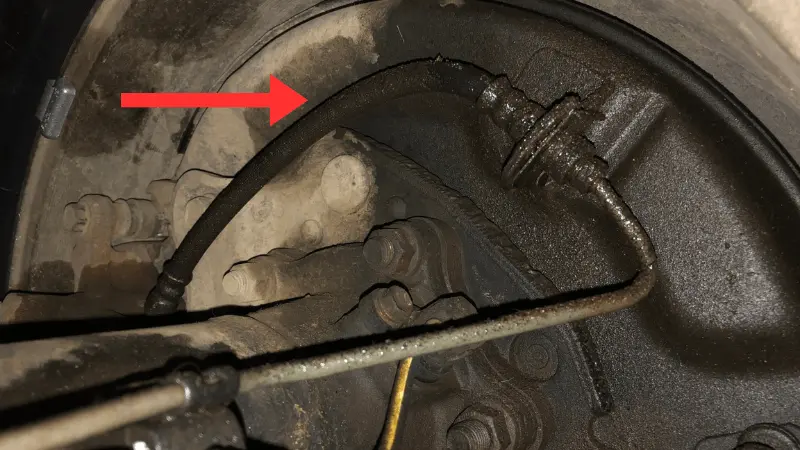
Brake Fluid Leaks from Rear Drum Brakes
Drum brakes are located at the rear wheels of most vehicles. When the brake pedal is applied, the brake drum causes friction on the wheels, slowing their spin. Sometimes, drum brake systems can develop leaks around the wheel cylinder. A leaking rear wheel cylinder will definitely reduce braking efficiency.
Solution: Replace the wheel cylinders or the brake drums if they are not working properly or are leaking.
ABS Pump Leaking Brake Fluid
A brake fluid leak from the ABS control module may result in a loss of hydraulic pressure, causing brake failure. The ABS control module regulates the flow of fluid to all braking system components. So, if it’s leaking, it indicates a major braking issue.
Solution: Repair it or change if it is not working well.
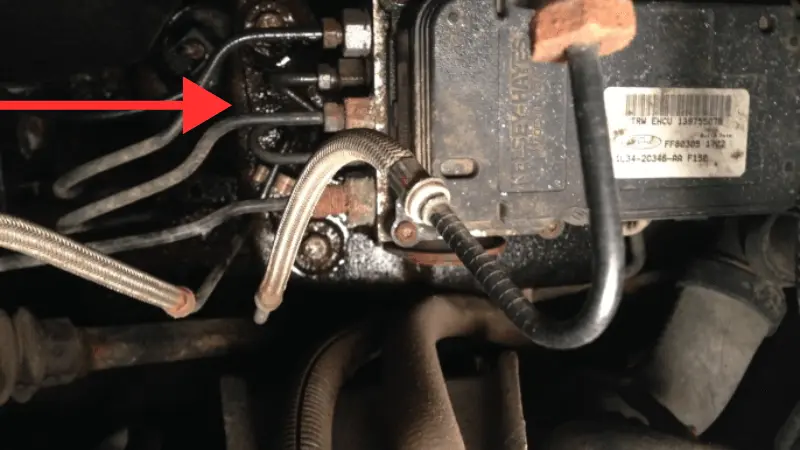
Banjo Bolt Leaking Brake Fluid
Banjo bolts connect the brake lines to other components of the braking system. If you see any leakage from them or notice fluid around them, it means the braking system’s hydraulic system will not perform at its full capacity. Leaked banjo bolts are a bad sign for an efficient braking system.
Solution: Tighten or replace the banjo bolt and washers.
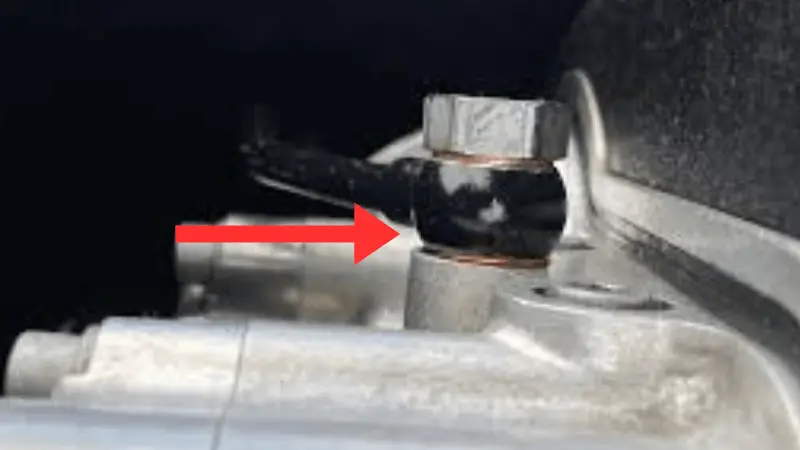
How to Detect and Prevent Brake Fluid Leaks?
- Adding Brake Fluid Leak Detection Dye to the brake fluid will help you identify possible leaks under ultraviolet rays. This saves time and allows you to easily pinpoint the exact location of the leak.
- Check your braking system regularly. Look for leaks from the master cylinder, brake lines, or calipers to ensure your braking system is functioning properly.
- Addressing minor faults early can prevent major damage.To keep your brake system safe and efficient, repair or replace any leaky or worn-out parts.
